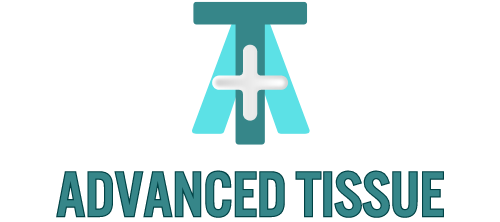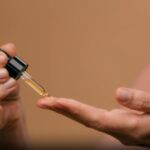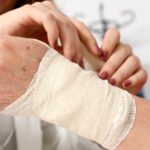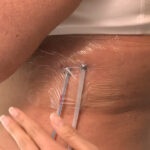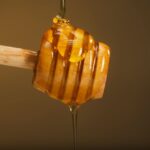Inflammation is the body’s initial response to a wound, aimed at removing damaged cells and fighting off any potential infections. Certain nutrients can enhance this response, ensuring it remains effective but not overly aggressive.
Following inflammation, the body begins to rebuild damaged tissues. This phase requires a significant amount of protein, vitamins, and minerals. Adequate nutrition ensures that this rebuilding process is efficient and complete.
Key Takeaways
- Certain nutrients are particularly important for wound healing, including protein, Vitamin C, zinc, and omega-3 fatty acids. These nutrients aid in tissue repair, collagen synthesis, immune function, and reducing inflammation.
- Protein is a critical nutrient for repairing and building tissue. Sources like lean meats, fish, poultry, eggs, dairy, beans, nuts, tofu, and legumes are recommended for their high protein content, which supports the body’s tissue repair and rebuilding processes.
- Vitamin C is crucial for collagen synthesis and boosting the immune system, while zinc is vital for maintaining skin integrity and structure. Foods rich in these nutrients, such as citrus fruits, bell peppers, leafy greens, oysters, beef, pumpkin seeds, and lentils, are beneficial for wound healing.
- High-sugar foods, excessive caffeine and alcohol, and processed foods can negatively impact wound healing. They can increase inflammation, impair the immune system, dehydrate the body, and lack essential nutrients, all of which can slow down the healing process.
- Adequate hydration is essential for wound healing as it aids in nutrient transportation and waste removal. It’s recommended to drink at least 8 glasses of water per day, and hydration can be further supported by consuming water-rich foods.
Key Nutrients for Wound Healing

A balanced diet is crucial, but certain nutrients deserve special attention when it comes to wound healing. These nutrients not only facilitate the repair of damaged tissues but also bolster the body’s defenses against infection and further injury.
Understanding and incorporating these key nutrients into your diet can significantly enhance your body’s natural healing process.
Protein: The Building Block
Protein is paramount in repairing and building tissue. It serves as the foundation for new cell growth and is crucial in the repair of muscle, skin, and other bodily tissues damaged during injury. Sources like lean meats, fish, poultry, eggs, dairy, beans, and nuts should be staples in a wound-healing diet.
Vegetarian and vegan options, such as quinoa and soy products, are also excellent protein sources and can be integrated into various meal plans.
Vitamin C: Collagen Synthesis and Immune Function

Vitamin C is essential for the synthesis of collagen, a key component of skin and new tissue. Its antioxidant properties also play a role in reducing oxidative stress at the wound site, which can otherwise delay healing. It also boosts the immune system, protecting the wound from infection.
Citrus fruits, strawberries, bell peppers, and leafy greens are excellent sources. Incorporating these foods into your daily diet can help in faster recovery and better wound care.
Zinc: Cellular Repair
Zinc plays a crucial role in maintaining skin integrity and structure. It aids in cell division and is essential for the proper functioning of enzymes that repair skin wounds. Foods like oysters, beef, pumpkin seeds, and lentils are rich in zinc.
A deficiency in zinc can lead to delayed wound healing, so ensuring adequate intake is vital for recovery.
Omega-3 Fatty Acids: Anti-Inflammatory Properties
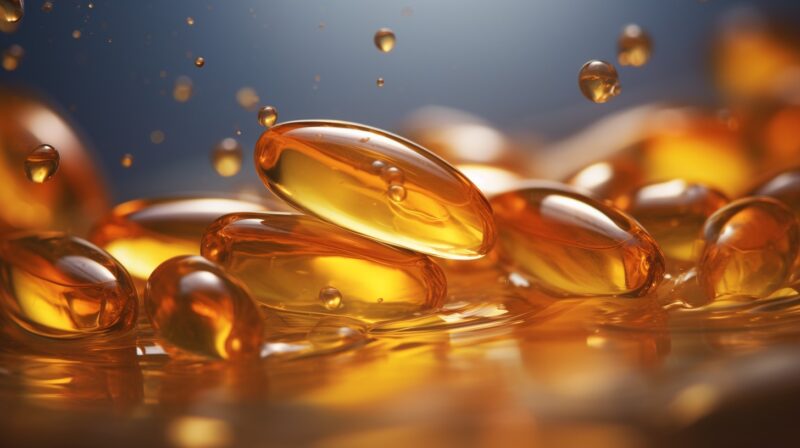
Omega-3 fatty acids, found in fish like salmon and mackerel, as well as flaxseeds and walnuts, have anti-inflammatory properties that can help reduce excessive inflammation during the healing process.
These fatty acids are also known to improve blood flow, bringing more nutrients and oxygen to the wound site, which can accelerate healing. Including omega-3-rich foods in your diet can support overall health and aid in the efficient healing of wounds.
Foods to Include in Your Diet
Now that we understand the key nutrients, let’s explore specific foods that can aid in wound healing. Each of these foods not only provides the necessary nutrients for wound repair but also contributes to overall health, ensuring that your body is in its best condition to heal.
| Nutrient Category | Food Sources | Benefits |
|---|---|---|
| Lean Protein Sources | Chicken, Turkey, Tofu, Legumes | Muscle and Tissue Repair |
| Vitamin C-rich Foods | Oranges, Kiwis, Broccoli, Spinach | Collagen Formation, Immune Support |
| Zinc-rich Foods | Seafood, Beef, Pumpkin Seeds, Chickpeas | Skin Integrity, Cellular Repair |
| Omega-3-rich Foods | Salmon, Chia Seeds, Walnuts | Reduce Inflammation, Heart Health |
| Whole Grains | Quinoa, Brown Rice, Whole-Wheat Products | Energy and Fiber, Digestive Health |
Hydration and Wound Healing

Hydration is often overlooked but is essential for wound healing. Water is vital for all bodily functions and plays a crucial role in the healing process. It aids in the transportation of nutrients and the removal of waste products from the wound site.
Adequate hydration also ensures that the skin and other tissues maintain their elasticity and function properly. Aim for at least 8 glasses of water per day, and consider including hydrating foods like cucumbers, watermelon, and oranges in your diet.
Foods to Avoid
Just as some foods can accelerate healing, others can impede it. Understanding which foods to limit or avoid can be as crucial as knowing what to include in a wound-healing diet.
| Food Type | Negative Impacts on Wound Healing |
|---|---|
| High Sugar Foods |
|
| Excessive Caffeine and Alcohol |
|
| Processed Foods |
|
FAQs
Can dietary supplements replace whole foods in a wound-healing diet?
While dietary supplements can be beneficial, especially if there are specific nutrient deficiencies, they should not replace whole foods. Whole foods provide a complex range of nutrients, fiber, and other compounds that work synergistically for optimal health and healing. Supplements can be used as an adjunct to, but not a replacement for, a balanced diet.
How does fiber play a role in wound healing?
Fiber is crucial for maintaining a healthy digestive system, which is vital for the absorption of nutrients necessary for wound healing. Additionally, fiber-rich foods can help regulate blood sugar levels, which is important because stable blood sugar aids in reducing inflammation and promotes better overall health during the healing process.
Is it necessary to follow a special diet for minor wounds like cuts or abrasions?
For minor wounds, a generally healthy and balanced diet, rich in fruits, vegetables, lean protein, and whole grains, is usually sufficient. However, ensuring adequate hydration and avoiding foods that can exacerbate inflammation (like high-sugar and processed foods) is still beneficial for optimal healing.
Can certain foods speed up the wound-healing process?
No specific food can miraculously speed up wound healing, but a diet rich in essential nutrients like protein, vitamin C, zinc, and omega-3 fatty acids can support the body’s natural healing processes. Consuming a variety of these nutrient-dense foods can contribute to more efficient wound repair and recovery.
Are there any specific dietary considerations for diabetic patients with wounds?
Diabetic patients need to be particularly mindful of their carbohydrate intake and monitor their blood sugar levels, as stable blood glucose is critical for wound healing. Diets should focus on low-glycemic index foods to avoid blood sugar spikes and include foods rich in protein, fiber, and healthy fats.
Consultation with a healthcare provider or a dietitian is recommended for personalized dietary advice.
Summary
The journey of healing is a holistic one, encompassing not just medical treatments but also the food we eat. A diet rich in proteins, vitamins, and minerals, coupled with adequate hydration, can significantly accelerate wound recovery.
By embracing these dietary guidelines, you empower your body’s natural healing capabilities, paving the way for a quicker and more complete recovery.
